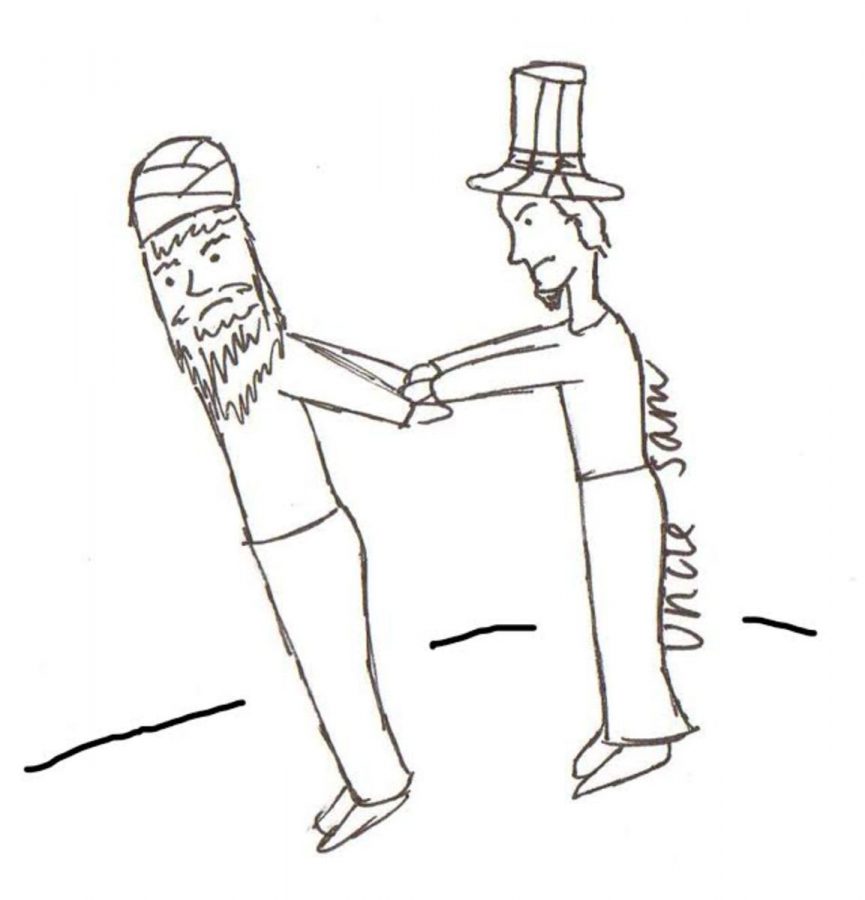U.S. raids need to end
December 12, 2013
The United States has a history of sticking its nose where it does not need to be. This often involves military strikes across the Middle East. The U.S. should cease special operations on other nations’ soil.
At the beginning of October, U.S. special forces launched a successful raid on the home of al-Qaeda operative Abu Anas al-Libi in Tripoli. Flushed with success, the U.S. was surprised when the Libyan government called the attack a kidnapping, and demanded al-Libi be returned to Libya. The resulting publicity forced Ahmed Abu Khattala, the man thought to be behind the 2012 Benghazi attacks, into hiding. The US had plans for a second raid to capture Khattala, plans now considered impossible.
These raids put diplomacy with Libya into rocky waters. According to a U.S. official, Libya had previously agreed with U.S. plans for the raid on al-Libi. However, the official also noted that the agreement had happened weeks or months ago. Since then, Libya has done a complete turn around.
The U.S. is completely at fault for this diplomatic fiasco. Our insistence on launching raids completely independent of the nations we are conducting operations in has a habit of producing problems.
Last month, the U.S. killed the leader of the Pakistani Taliban with a drone strike on Pakistani soil. This drew much backlash from Pakistan’s government.
Killing the leader of the Pakistani Taliban turned out to be a horrible move. The Pakistani government and Taliban were in the midst of peace talks. Since the attack, the Taliban has called off these peace talks. This is because they appointed a man who is even more extremist in his views than his predecessor was.
Terrorism has only been expanding more in recent years. In countries with destabilized governments like Syria and Somalia, terror groups have been gaining power.
This spread makes strikes next to useless. Terrorist organizations have become organized enough that losses at the top cannot entangle their operations, but American attacks on Middle Eastern or African soil can simply serve as a recruitment tool for extremists.
The U.S. government obviously believes that killing top leaders will undermine terrorist groups short term plans, and this is to a large extent true. The more important point, though, is that every action the U.S. military takes simply pushes more and more people towards extremism. We have violated other countries’ sovereignty, now America has to pay the price.
That price consists in part of American lives. Strikes on the leaders of terrorist organizations main outcome is increasing resentment of the U.S., so these strikes must be stopped.









Anna Kaul • Jan 9, 2014 at 11:23 pm
This article was very informative–I loved that the opinion was right away, so I immediately knew where the author stood. The conclusion was also very strong, which is especially important in editorials. I liked that the conclusion also drew into the headline, making it obvious that the editor took care to read and do justice to the article. Even though the article had less fact and more opinion, it was still clear the author researched the topic. Overall, it was a very interesting article.
Christine • Jan 7, 2014 at 2:13 am
Great Article! I like how you clearly stated your feelings on the subject and made your opinion clear. You had good facts to back up your opinion.